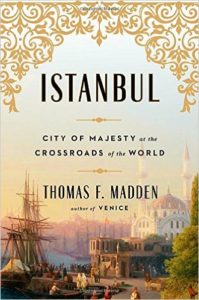So I’m not in this book so CLEARLY it is a huge disappointment.
Jk, that isn’t why it was disappointing (tho I could have forgiven my omission had the book made up for it otherwise.) It’s hard to go into why the book failed to reach the levels of awesomeness that the first two books in the series easily reached without going into spoilers, but I think that if you’ve gotten this far and are hesitating about reading the book itself, then what I’m about to say isn’t really a spoiler since it doesn’t discuss anything that happens, but instead a very huge thing that doesn’t happen, and that is this (and you can stop reading any time if you’d rather not find out anything about the book, tho if that were the case, I’d imagine you wouldn’t even have read this far):
The game ends but you’re never told why the game was begun, or who the Keplers are or why they’ve done anything up to this point besides provide a Deus for the plot machina. It’s… weird. You go through all this exciting story but you’re never told why any of it is happening. Which is a valid plot for a certain type of book (Algis Budrys’ Rogue Moon comes to mind as a successful example) but Rules Of The Game is not that kind of book. It should be the slam bang conclusion of a terrific action trilogy set against an apocalypse put in motion by manipulative, powerful aliens. Instead, it’s a weird little coda that kills off characters willy-nilly (tho not necessarily unexpectedly, if you’ve been following the trilogy) and gives us no answers about the game itself. If it’s meant to be an existential display of the futility of finding answers to the question of life, it’s gone about it in a way that’s guaranteed to disappoint its existing fans while winning it no new ones. If it’s a brazen ploy to stretch out the suspense over the course of a new set of books, well, that’s both condescending to its fans and indicative of a lack of self-confidence in the authors’ powers of imagination.
So yeah, I was disappointed by the fact that I never materialized in this book’s pages, despite being promised a bigger role than in book two. But mostly I was disappointed by how this book didn’t bother answering any of the questions it successfully, suspensefully raised in the prior books. And that’s a shame, because I really enjoyed the first two novels in the series.







